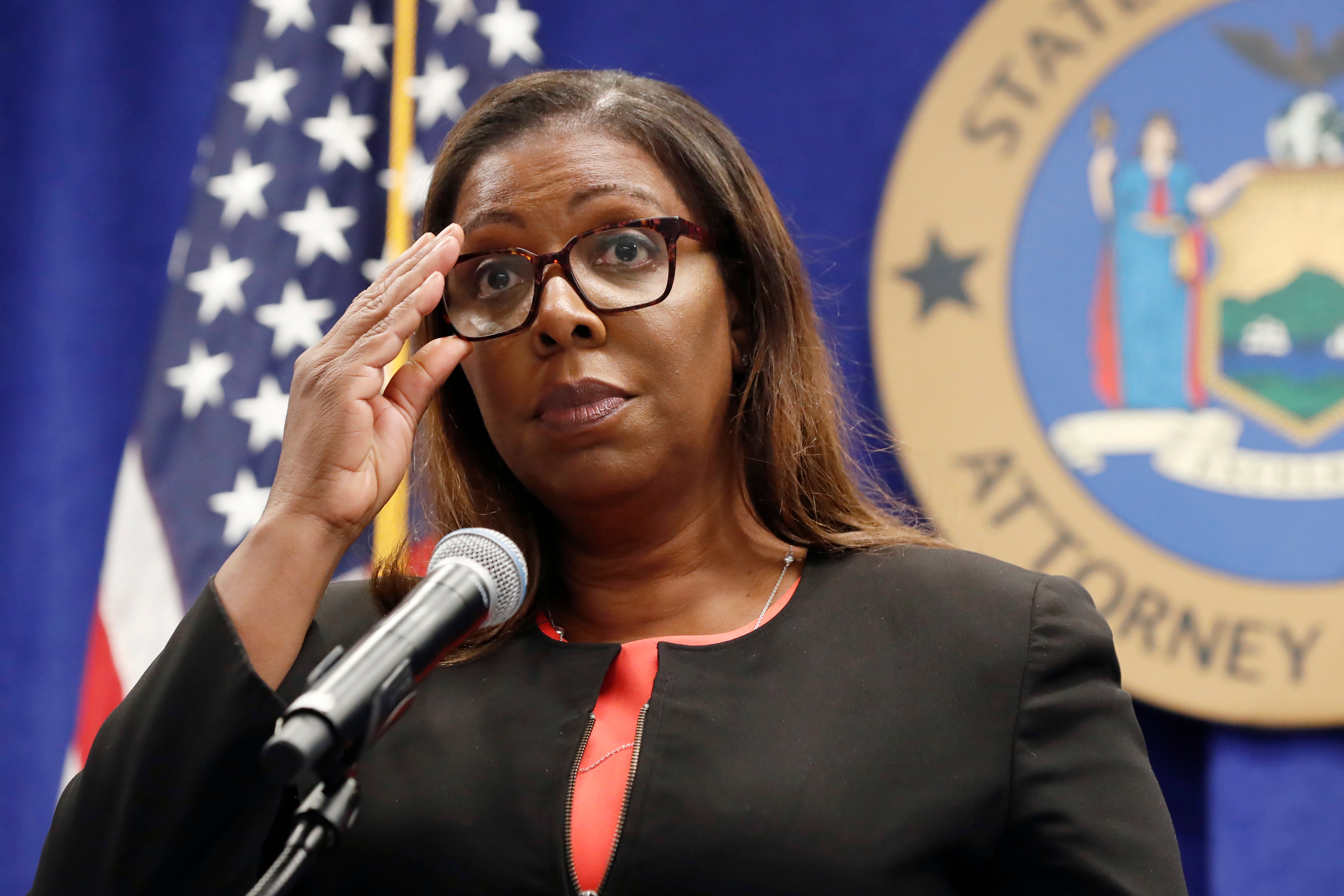Judge: NY lawsuit seeking NRA's dissolution can go forward
A New York judge on Thursday denied the National Rifle Association’s bid to throw out a state lawsuit that seeks to put the powerful gun advocacy group out of business

Your support helps us to tell the story
From reproductive rights to climate change to Big Tech, The Independent is on the ground when the story is developing. Whether it's investigating the financials of Elon Musk's pro-Trump PAC or producing our latest documentary, 'The A Word', which shines a light on the American women fighting for reproductive rights, we know how important it is to parse out the facts from the messaging.
At such a critical moment in US history, we need reporters on the ground. Your donation allows us to keep sending journalists to speak to both sides of the story.
The Independent is trusted by Americans across the entire political spectrum. And unlike many other quality news outlets, we choose not to lock Americans out of our reporting and analysis with paywalls. We believe quality journalism should be available to everyone, paid for by those who can afford it.
Your support makes all the difference.A New York judge on Thursday denied the National Rifle Association’s bid to throw out a state lawsuit that seeks to put the powerful gun advocacy group out of business.
Judge Joel Cohen’s ruling will allow New York Attorney General Letitia James’ lawsuit to move ahead in state court in Manhattan, rather than dismissing it on technical grounds or moving it to federal court, as the NRA’s lawyers desired.
James’ lawsuit, filed last August, seeks the NRA’s dissolution under state nonprofit law over claims that top executives illegally diverted tens of millions of dollars for trips, no-show contracts and other expenditures.
James is the state’s chief law enforcement officer and has regulatory power over nonprofit organizations incorporated in the state, such as the NRA Cohen said.
“It would be inappropriate to find that the attorney couldn’t pursue her claims in state court just because one of the defendants wants to proceed in federal court,” Cohen said at a hearing held by video because of the coronavirus pandemic.
Cohen also rejected the NRA’s arguments that James’ lawsuit was improperly filed in Manhattan and should’ve been filed in Albany, where the NRA’s incorporation paperwork lists an address. The NRA’s arguments for dismissing the case did not involve the merits of the case.
The NRA has been incorporated in New York since 1871, though it is headquartered in Virginia and last week filed for bankruptcy protection in Texas in a bid to reincorporate in that state.
The NRA, in announcing its bankruptcy filing last Friday, said it wanted to break free of a “corrupt political and regulatory environment in New York” and that it saw Texas as friendlier to its interests.
The NRA’s lawyers said at a bankruptcy court hearing on Wednesday in Dallas that they wouldn’t use the Chapter 11 proceedings to halt the lawsuit.
After Thursday’s ruling, they said they were ready to go ahead with the case, including a meeting with lawyers from James’ office on Friday and another hearing in March.
In a letter to Cohen in advance of Thursday’s heading, NRA lawyer Sarah Rogers said the organization had no position on seeking to stay the case through bankruptcy, but that it reserved right to seek such orders from bankruptcy court in the future.
Normally, a bankruptcy filing would halt all pending litigation. James’ office contends that its lawsuit is covered by an exemption involving a state’s regulatory powers and cannot be stopped by bankruptcy.
Assistant New York Attorney General James Sheehan said he hoped to bring the case to trial by early 2022.
In seeking to dismiss or move the state’s lawsuit to federal court, Rogers argued that many of its misspending and self-dealing allegations were also contained in pending lawsuits in federal court — a slate of cases she described as a “tangled nest of litigation.”
Part of Rogers’ argument for moving the state lawsuit to federal court involved an error in the state’s original filing that she said altered the timeline of when it was filed.
James’s office filed its lawsuit on Aug. 6, but later had to amend the complaint to include a part that was left. That same day, the NRA filed a lawsuit in federal court alleging James’ actions were motivated by hostility toward its political advocacy, including her comments in 2018 that the NRA is a “terrorist organization.”
Rogers contended that because of the filing glitch James’ lawsuit should be considered a counterclaim to the NRA’s lawsuit and handled alongside of it in federal court.
Cohen rejected that, saying Rogers was placing “far too much weight on a non-substantive error that was quickly fixed.”
“The attorney general filed first,” he said.
___
Follow Michael Sisak on Twitter at twitter.com/mikesisak